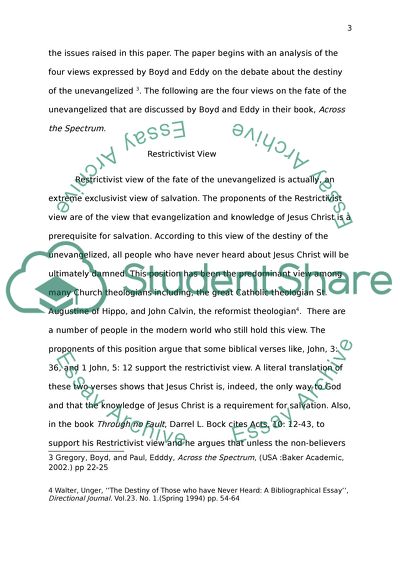Cite this document
(“The Destiny of the Unevangelized Debate Research Paper”, n.d.)
Retrieved from https://studentshare.org/religion-and-theology/1477339-the-destiny-of-the-unevangelized-debate
Retrieved from https://studentshare.org/religion-and-theology/1477339-the-destiny-of-the-unevangelized-debate
(The Destiny of the Unevangelized Debate Research Paper)
https://studentshare.org/religion-and-theology/1477339-the-destiny-of-the-unevangelized-debate.
https://studentshare.org/religion-and-theology/1477339-the-destiny-of-the-unevangelized-debate.
“The Destiny of the Unevangelized Debate Research Paper”, n.d. https://studentshare.org/religion-and-theology/1477339-the-destiny-of-the-unevangelized-debate.


